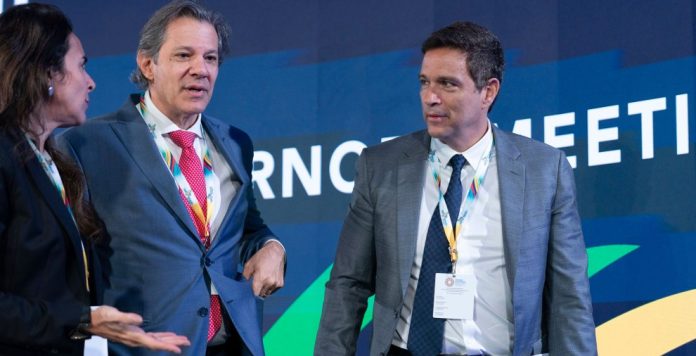28 Apr. 24: Ministers representing Brazil, Germany, South Africa, and Spain have jointly proposed implementing a 2% minimum wealth tax on the world’s 3,000 billionaires, aiming to generate £250 billion annually to combat global poverty, inequality, and climate change.
The initiative, backed by growing international support, highlights the urgency to address economic disparities and raise essential funds following the impact of the pandemic, climate challenges, and regional conflicts.
“We urge the international community to prioritize tackling inequality and funding global public goods,” stated the ministers in a commentary published in The Guardian.
They emphasized that tax policies play a pivotal role in promoting equality, enabling governments to invest in social protection, education, and climate initiatives, while ensuring that all members of society contribute proportionally to the common good.
Brazil, as the current chair of the G20, spearheaded discussions on implementing a billionaire tax during a recent meeting of finance ministers.
Renowned French economist Gabriel Zucman is tasked with refining the technical aspects of the proposal, which is set to be revisited by the G20 in June. France has expressed support for the wealth tax, and Brazil is encouraged by the United States’ neutral stance on the matter.
Zucman highlighted the disparity in tax rates, stating that billionaires often pay the lowest effective tax rate among social groups, a situation widely viewed as inequitable.
Recent research by Oxfam revealed a significant increase in billionaire wealth, while the World Bank reported a halt in poverty reduction efforts amidst the pandemic.
The ministers stressed that a billionaire tax serves as a crucial complement to ongoing negotiations regarding digital taxation and the introduction of a minimum corporate tax for multinational corporations.
They proposed designing the tax as a 2% minimum levy on billionaire wealth, exempting those who already contribute proportionately through income taxes while obliging tax evaders to contribute more to the common good.
Addressing persistent tax evasion loopholes and the use of tax havens is paramount, with measures aimed at preventing billionaires from reducing their tax liabilities below the agreed global minimum.
Zucman acknowledged potential challenges, anticipating opposition from the super-rich, who typically oppose taxes on wealth and are known to leverage their influence through lobbying and media ownership.
In conclusion, while the proposal garners significant public support, it is essential to recognize Islam’s longstanding solution to wealth redistribution through Zakat, where 2.5% of one’s surplus wealth is allocated to the needy and poor. This practice offers a viable framework for economic reform and the establishment of a welfare-oriented society.




